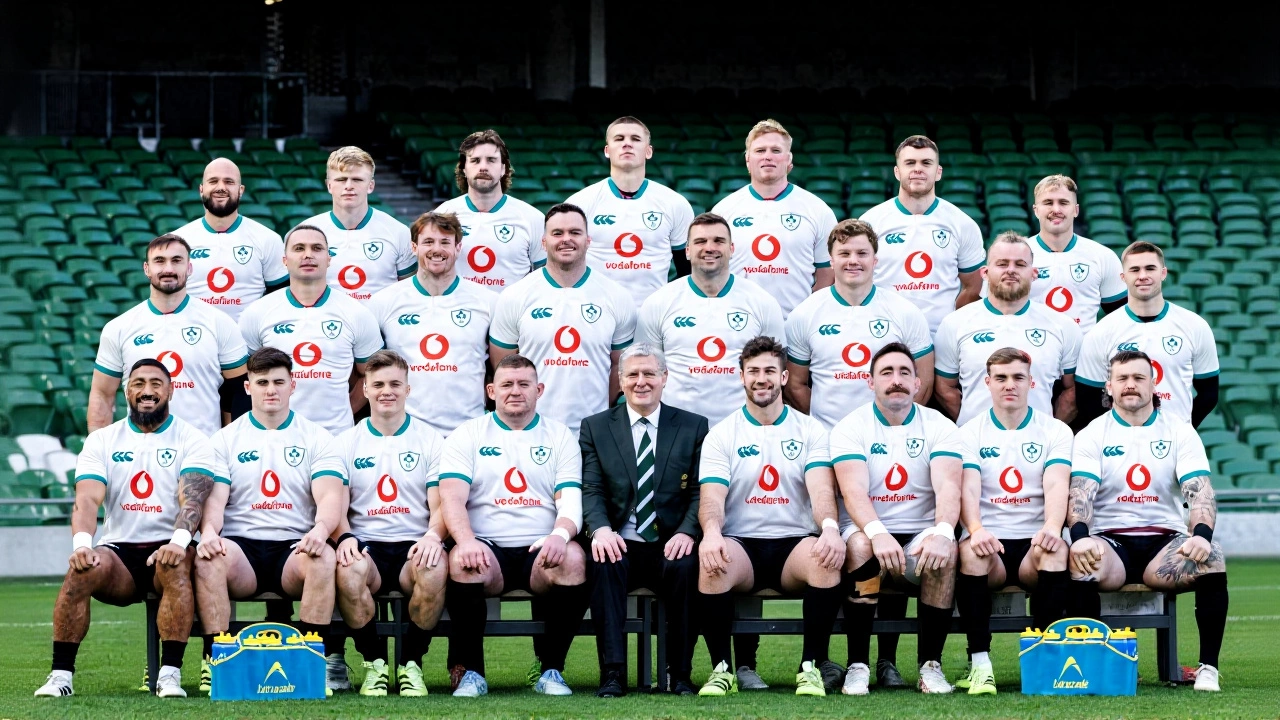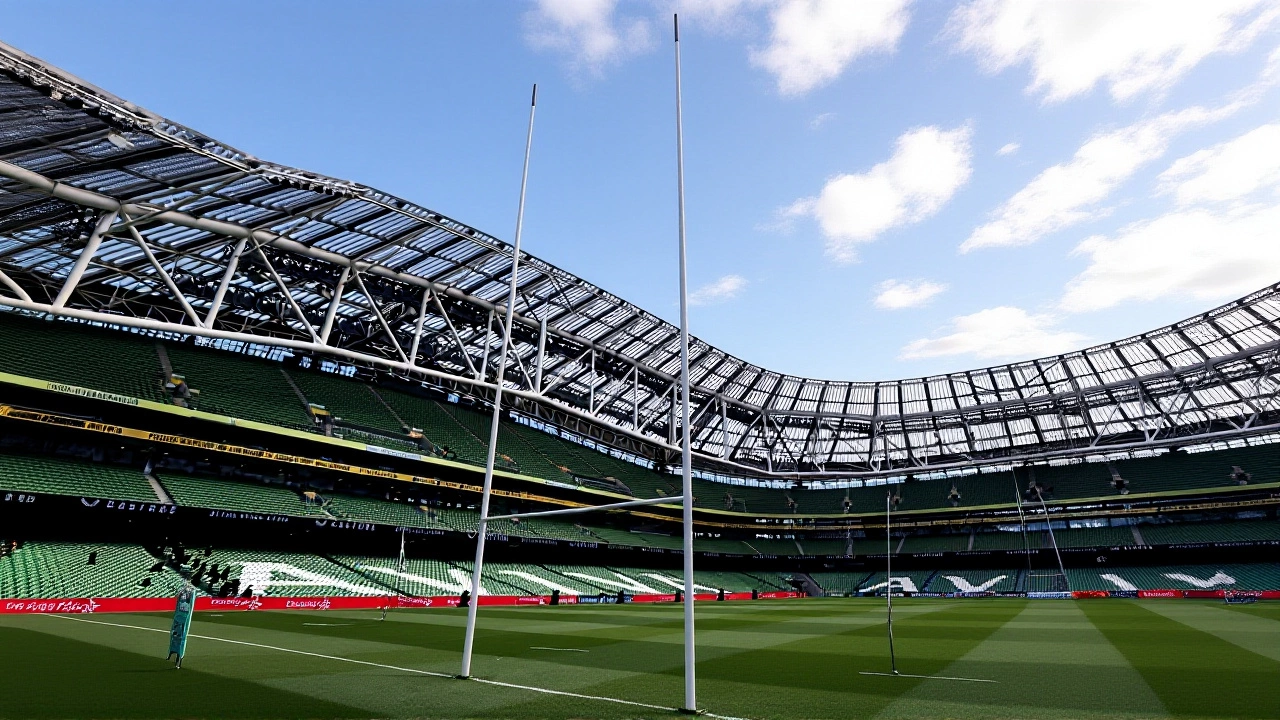The Springboks finally conquered Dublin’s rugby curse on Saturday, November 22, 2025, grinding out a 24-13 victory over Ireland at the Aviva Stadium — their first win in the Irish capital in 13 years. The win, sealed in front of 51,700 roaring fans, wasn’t pretty. It was bruising, chaotic, and at times, ugly. But for South African Rugby Union, it was everything. Coach Rassie Erasmus summed it up best: "Glad we got the monkey off our backs." After years of near-misses and heartbreak in Dublin, this wasn’t just a win. It was liberation.
The Dublin Hoodoo Is Dead
Since 2012, no Springboks team had left Dublin with a win. Thirteen years. Nine attempts. Six losses, three draws. The weight of that history hung over every tackle, every scrum, every kick. Even when South Africa dominated the stats — possession, territory, lineouts — they couldn’t crack the Irish fortress. Until now. This time, they didn’t need poetry. They needed pressure. And they applied it like a vice. The Autumn Nations Series 2025 match wasn’t just another fixture — it was a reckoning.Controlled Chaos and a Carded Catastrophe
Ireland’s night unraveled in a way few test matches ever have. Within a 40-minute stretch in the second half, they were down to 12 men after four yellow cards — a record for a single international match in the professional era. A fifth followed in the final 10 minutes. The referee Matthew Carley, assisted by Karl Dickson and Christophe Ridley, became the unlikely central figure in a match that swung wildly between discipline and desperation. Ireland’s discipline collapsed. South Africa’s didn’t. Not because they were saints — far from it — but because they knew how to exploit chaos. The Springboks set piece was a machine. The scrum, especially, turned into a demolition zone. "The Irish scrum pulverized once more," noted one YouTube commentary, referencing the relentless pressure from props Fineberg and Gazulu. Every time Ireland tried to build momentum, they met a wall of South African muscle. Second row Ruan Nortje, rated 7.5 by RugbyPass, was everywhere — a tireless presence in the lineout, a constant disruptor at the breakdown. "He’s the commanding presence," the report said. And he was.Controversy in the Air
But the match wasn’t just about rugby. It was about tension. The atmosphere, described by RugbyPass as having "palpable animosity," felt like a war zone. Fans on both sides traded barbs online. One commenter claimed Ireland’s illegal scrum techniques were "found out," while another fired back: "The ref penalized SA for abusing Irish players. Willemse and Rassie gestured at the Irish crowd. Saffer liars invent the conspiracy theory." The truth? Both sides pushed the edge. South Africa’s forwards were physical — some would say borderline. Ireland’s pack, under pressure, snapped. The penalties piled up. The yellow cards kept coming. The TV match official Andrew Jackson and foul play review officer Dan Jones were kept busy. This wasn’t just a game. It was a battle of wills, with the whistle as the only referee.Why This Matters Beyond the Scoreline
The win confirmed South Africa’s grip on the World Rugby Rankings — they remain number one. More importantly, it validated Rassie Erasmus’s philosophy. He’s spent years rebuilding the Springboks’ identity — not just as a physical team, but as a mentally unbreakable one. This win wasn’t about flair. It was about grit. About refusing to flinch when the crowd roared and the scoreboard screamed pressure. For Ireland, the questions are louder than ever. The Telegraph’s headline — "Questions raised over Ireland’s future after plucky defeat by Springboks" — says it all. Can they adapt? Can they control their tempers? Can they win when the game turns brutal? Their attack looked disjointed. Their discipline, nonexistent. And in a world where margins are millimeters, that’s fatal.
What’s Next for Both Teams?
The Springboks now head into their final match of the 2025 Castle Lager Outgoing Tour with momentum. They’ve won all four games on tour. Confidence is high. But the real test comes next year — the Rugby Championship, and then the 2027 World Cup. Can they sustain this level? Ireland, meanwhile, faces a reckoning. Their core — James Ryan, Johnny Sexton, Bundee Aki — are aging. Younger players like Harry and Ring Rose showed flashes, but consistency is missing. The coaching staff has a choice: rebuild with youth, or cling to experience and risk more collapses like this one.Behind the Scenes: The Numbers That Tell the Story
- 24-13: Final score, with South Africa leading 19-7 at halftime - 5 yellow cards: Ireland’s record-breaking disciplinary collapse - 13 years: The length of Dublin’s winning streak for Ireland against the Springboks - 51,700: Capacity of the Aviva Stadium, sold out for the first time since 2023 - 4 consecutive wins: South Africa’s streak on their 2025 Castle Lager Outgoing Tour - 7.5/10: Ruan Nortje’s RugbyPass rating — highest on the fieldFrequently Asked Questions
How did South Africa manage to dominate the set piece despite Ireland’s reputation for scrum strength?
South Africa’s scrum, led by props Fineberg and Gazulu, used superior technique and relentless pressure to break down Ireland’s traditional strength. Ireland’s front row, under immense fatigue and repeated penalties, lost cohesion. The Springboks’ coaching staff spent weeks studying Irish scrum habits and exploited subtle illegal techniques, leading to repeated free kicks and penalties that drained Ireland’s energy and morale.
Why did Ireland receive so many yellow cards in such a short time?
Ireland’s frustration mounted as South Africa’s physicality disrupted their rhythm. Repeated infringements at the maul, off-the-ball contact, and delayed release led to a cascade of penalties. Referee Matthew Carley, under pressure from the TV official, began enforcing the laws strictly after multiple warnings. With key players like James Ryan already fatigued, Ireland’s substitutes lacked the discipline to hold the line.
What impact does this win have on South Africa’s World Cup chances?
This victory proves the Springboks can win ugly — a vital trait for World Cup success. Their ability to control territory, dominate set pieces, and absorb pressure under hostile conditions mirrors past champions. With Rassie Erasmus at the helm and a core group of experienced players, South Africa now enters 2027 as clear favorites, not just on paper, but in mentality.
Is the "Dublin hoodoo" really over, or is this a one-off?
It’s over. The psychological barrier has been shattered. South Africa has now won in Dublin under three different coaches, but this is the first time they’ve done it with such dominance and resilience. The 2025 win wasn’t luck — it was preparation. Future Springbok tours to Ireland will no longer carry the weight of history. The narrative has changed.
How did the officiating affect the outcome?
The officiating was decisive. Referee Matthew Carley applied the laws consistently once the game turned physical. While some fans accused bias, the data shows South Africa committed fewer penalties overall. The key difference? Ireland’s repeated infringements came in clusters — often when they were tired or desperate. Those weren’t random — they were symptomatic of a team losing control.
What does this mean for Ireland’s coaching staff?
The pressure is mounting. Ireland’s failure to adapt tactically under pressure, combined with their disciplinary collapse, suggests their game plan is outdated. With aging stars and a lack of depth in the forward pack, the IRFU may need to overhaul their training culture — prioritizing mental toughness and scrum resilience over flair. Otherwise, they risk falling behind in the new era of physical, high-intensity rugby.
